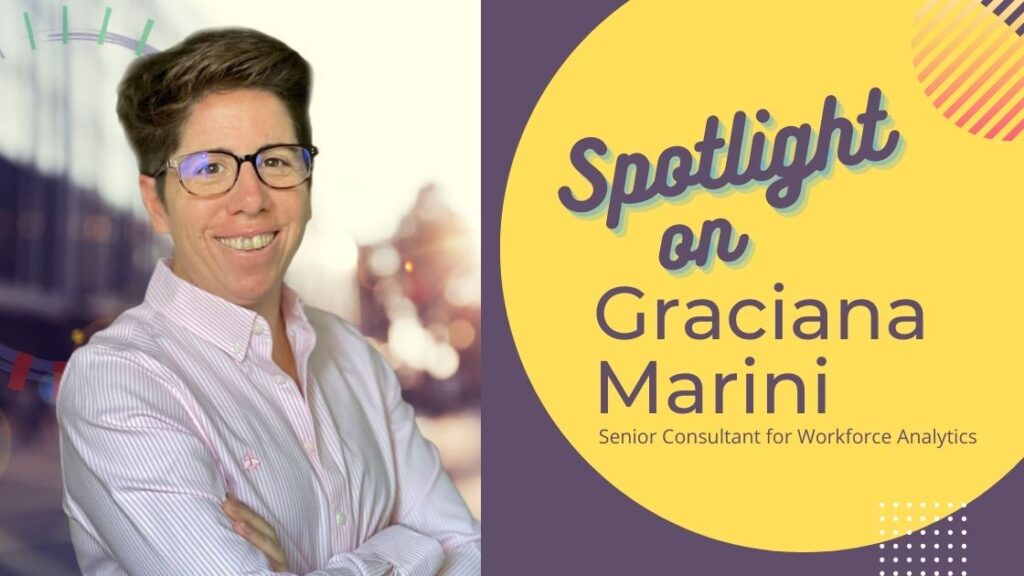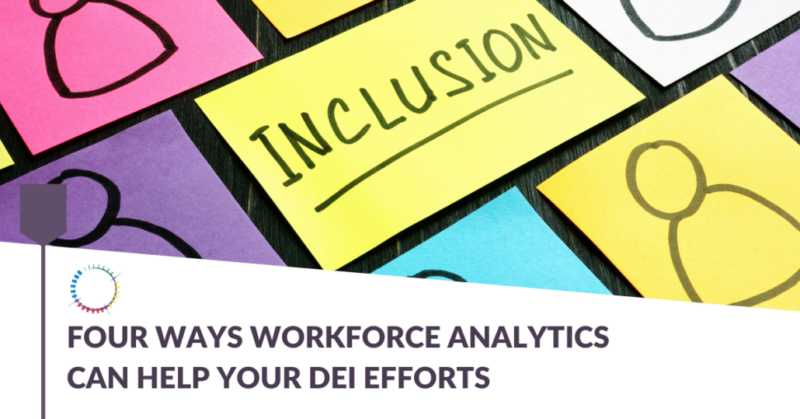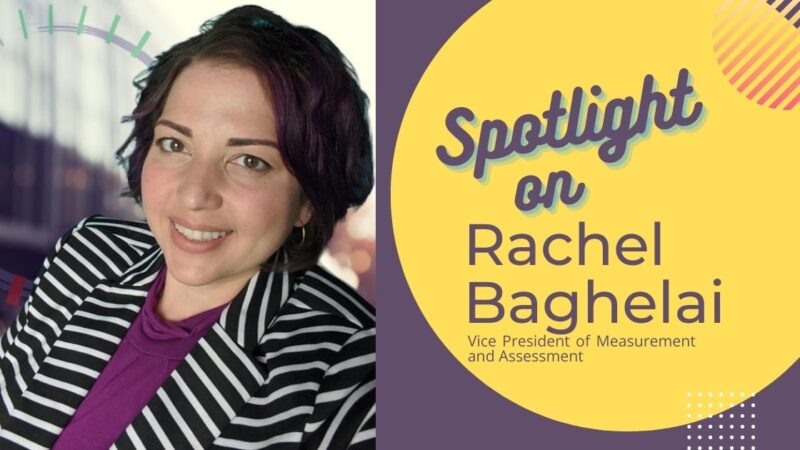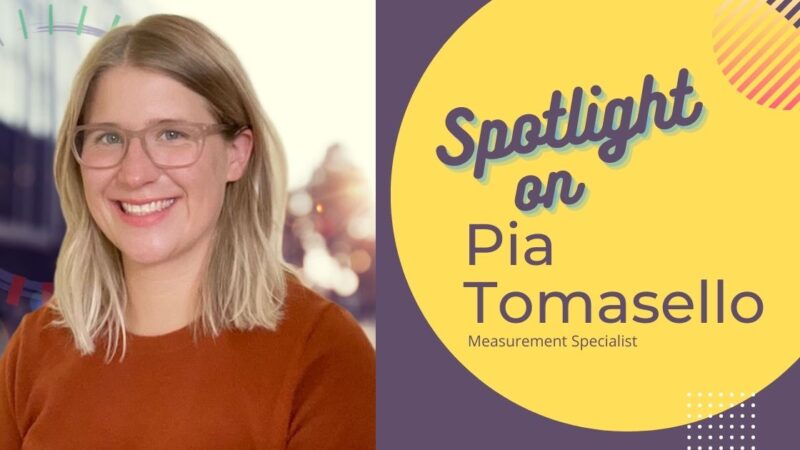Meet Graciana Marini: Consultant for Workforce Analytics
August 3, 2023

Meet The Kaleidoscope Group’s Senior Consultant for Workforce Analytics Graciana Marini: Relying on data to foster brave, and often challenging and uncomfortable, conversations about diversity, equity, and inclusion that center more around facts and less on gut feelings.
So many of us have non-linear career paths that lead us in a direction we didn’t foresee. And some of us end up exactly where we’re supposed to be based on interests or passions that reveal themselves as we experience life and grow as individuals. We have that “aha moment”, and our passions and expertise meld into a rewarding career that allows us to make a real difference.
The Kaleidoscope Group’s Senior Consultant for Workforce Analytics, Graciana Marini, is a case in point. Initially, Graciana had her sights set on a career in medicine, even starting pre-med. Still, something else piqued her interest, and that was her love of data and using data to address problems to arrive at objective solutions that she believed could improve the way we work, collaborate and develop diverse talent.
Fixing ‘Broken’ Things
After deciding to opt out of medical school, she entered an HR program which she believed would fulfil her urge to “fix broken things” while also considering HR to be “prescriptive medicine for organizations.” Graciana began her corporate career in the trenches, working in traditional HR and personnel roles that gave her an interesting insight. not only is HR not always the right prescription for what ails an organization; sometimes it’s actually part of the problem contributing to “sick” or underperforming companies.
Graciana worked in almost every HR role imaginable over nearly two decades, honing her skills and doing her utmost to leave every engagement better than when she joined. Her international experience is broad and vast, cutting across industry sectors, borders, cultures and languages. Her formidable resume includes positions in tech, finance, oil and gas, and other sectors with notable multinational companies like American Express, ExxonMobil, and SC Johnson. Her career trajectory, mostly based in Argentina included engagements across Latin America, North America, and Southeast Asia before finally relocating to the US over five years ago. This international exposure gave her a broad appreciation for diversity and the commonalities that motivate all people in the workplace despite cultural differences.
The Role of Workforce Analytics in DEI
In her last role, before joining The Kaleidoscope Group, Graciana’s manager challenged her to make sense and use of the tremendous amount of employee data that the company had accrued but never leveraged to further understand the workplace and the workforce. While not necessarily a data analyst at this point, she welcomed the challenge.
“This was a 130-year old company, and they had an amazing amount of employee data that they had never used to inform strategy or business decisions,” Marini said. “Eventually, I began collaborating with the head of DEI, who really had an uphill battle in affecting real change. And that’s how I really sparked my interest in the important role that workforce analytics can play in the DEI space.”
After meeting her life partner and settling into a more domestic role as a homemaker (a role she surprisingly enjoyed), she still had strong interests in using her acquired data expertise for HR and more specifically DEI, when she learned about the The Kaleidoscope Group while considering rejoining the labor force. “I thought it was a unique and interesting opportunity, so I went for it, and here I am.”
HR plays such a pivotal role in creating the employee experience by, among other things, designing and implementing policies and processes that guide people along the employee life cycle. However, these policies are executed by ‘humans.’ “That, to me, is where the rubber meets the road,” she concluded. “You can have the best-designed policy or process that’s neutral on its face, written in inclusive language, but people are fallible and make mistakes. So even the best-intentioned practices are only as good as the people responsible for executing them.”
Graciana says that putting every people decision under the proverbial microscope and understanding, through data, what is the outcome of each one, is the “make or break point” when it comes to actualizing DEI. “Until we do that, we don’t fully understand what makes or breaks inclusion in the workplace.”
Another important part of the equation she stresses is the role of leaders demonstrating inclusive leadership behaviors—including taking accountability. Leaders have an outsized influence on the employee experience as well as on how people practices are brought to life. “Leaders don’t always have to be the people who know the most. Sometimes they bungle it, just like everyone else. But too often, they’re shielded from accountability, negative feedback, or conflict which causes a lot of pain for everyone. No one who has worked with a great leader remembers how great they were technically. They remember leaders who cared about them, who inspired them and who trusted them.”
Graciana says we should become more adept at leveraging workforce analytics to assess the outcomes of all decisions that affect people—who gets hired or fired, who gets a pay raise or a promotion.— and to understand how different employee segments (also known as demographics) fare through the talent life cycle.
As a final reflection, Graciana cautions us about responding to every new buzz term, particularly in relation to DEI, leadership frameworks, and HR practices, and encourages us to stay true to our focus on people as individuals. “It’s become over-complicated because there’s always a new leadership model or DEI framework that they think will be the next big thing. But that’s not effective or practical. It always boils down to the individual and how we treat people, so at the end of the day, understanding and owning the outcomes of people practices will help us crack the DEI code,” she declared.
Want to Learn More?
To learn more about how people practices, workforce analytics, and DEI intersect, reach out to The Kaleidoscope Group’s Assessment Practice. And be sure to follow us on social media for more great insights to inform you as you start or continue your DEI journey.


